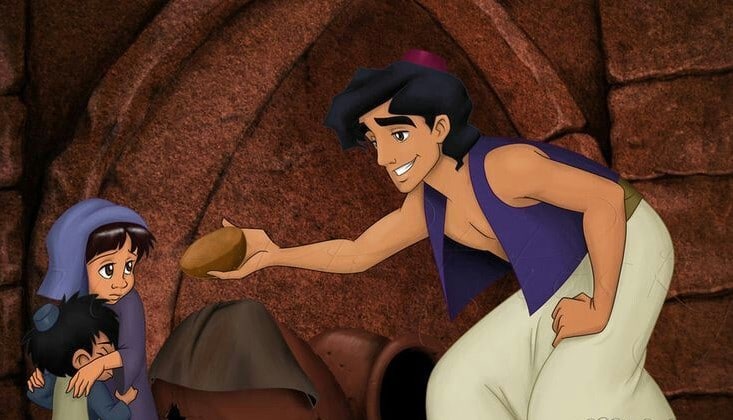
Anyone who knows me, knows that I’m a total storyholic. That is, I tend to get overexcited when talking about stories, and “Lech Lacha” is most definitely a story! Perhaps the most epic parsha [Torah section] of them all, and not just because it was my Bar-Mitzvah portion.
Know why?
It’s because of the test.
Yeah, Avraham Avinu was given 10 tests—though apparently someone can’t count, because there were way more than that. Maybe not as many stars as Avraham was shown, but it was close.
It’s like this poem I once heard: “Two plus two is twenty-two. / It is plain that that is true. / But my teacher just can’t be sure / because she keeps saying the answer’s four…” though what we’re testing here is not just one’s physical ability to overcome obstacles and follow directions, but one’s sanity as well.
Joseph Campbell, in his work in The Hero’s Journey, even marks one of his stages as “Test, Enemies, and Allies.” Blake Snyder calls this the “Fun and Game section” of any story; it’s when we pay less attention to plot, and just take pleasure in exploring this new world that the writer has created.
But make no mistake: we are still testing our hero.
Let me give you an example. At this point in Disney’s 1992 adaptation of Aladdin, Aladdin has the lamp. Unlike how he started this tale, he now has all the power, an opportunity to pose as a prince, and maybe even the chance to win the heart of the princess. But can he do it?
Can he pull off his princely facade? Can he make the princess fall for him? And most importantly, can he stay true to himself in the process?
And that is why we test our heroes: to see if their character is strong enough to withstand all the pressure.
Avraham Avinu was not the only biblical figure to be tested. Adam failed to ignore the allure of the apple. It couldn’t have been easy for Noah to listen to all that mockery from his neighbors. And there’s Daniel in the lion’s den.
What do all these guys have in common? A little thing I like to call “hero empathy, “ otherwise known as a willingness to sacrifice.
To go back to Aladdin, up to the point when Aladdin forfeits his bread to the orphan children, all we really know about him is that he is a thief—a likable thief, but we have no real insight into his personality.
We are really drawn in to Aladdin’s side when Aladdin selflessly gives away the food that he had just risked his life to get, to two starving kids. Now we’re on the side of this unlikely hero.
He may be a filthy street rat, but the writers of this tale have basically told us, “Pay attention to this guy; he just might have hidden depth worth rooting for.”
Avraham Avinu’s situation was different. Being able to afford servants, riches, and a special connection with the Almighty doesn’t exactly compare to starving on the streets of a desert kingdom, but aren’t both heroes lacking something they’d give anything to have?
I’ve never been a father who had been yearning for a son for 90 some years, but I’d be willing to bet that the turmoil that comes with the request to stab your kid in the back is pretty much universal.
For a sacrifice may not just be about food, kids, or for that matter, rams. It is also about sacrificing our time, effort, and most of all, our sanity.
When faced with a difficult dilemma, either option can seem insane. All heroes make sacrifices. The question is: will they make the right one?
We all know that god works in mysterious ways. Avraham did not know the purpose for having his child sacrificed to him. But what he did know was that as a righteous Jew, his duty was just to assist in any way he could.
Thank heavens that dastardly deed did not actually take place, but Avraham’s willingness to do such a thing just to fulfill the bidding of another proved to god—and to us as well—that Avraham Avinu was capable of the ultimate sacrifice and worthy of hero status.
Screenwriter and director Milos Forman says, “I consider every film to be a biography, regardless of whether it’s a biography of a living person or a fictitious person.”
So my question for you is this: Does your hero have what it takes? What will your hero do in the service of others?
Which leads to my real question—in today’s trying times: Do you have what it takes to be a hero? What will you do in the service of others?
You may not have the answer right now. That’s ok. Take your time. Figure it out. And when you do, don’t be shy. Shout it out for all to hear!








